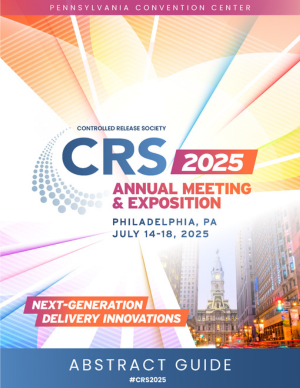Manufacturing and Process Scale-Up
(260) Reproducible and scalable polymer nanoparticle manufacturing facilitates clinical translation
Introduction: Polymer nanoparticles (PNPs) are a promising delivery method for gene therapies. PNPs can overcome known concerns for AAVs and LNPs, such as cargo capacity limitations, adverse immune responses, cell-based manufacturing challenges, and high cost of scaled production [1]. Reproducibility is crucial to successful delivery vehicle discovery and enables increased production to support clinical translation. This work used a rapid, iterative PNP discovery platform to demonstrate progress toward reproducible and scalable PNP manufacturing intended to facilitate gene therapy clinical translation.
Learning Objectives:
- Understand the importance of scalability on production yield.
- Examine how polymer composition can impact manufacturing reproducibility.
- Assess how an iterative PNP discovery platform facilitates clinical translation of gene therapies.
Nickolas Andrioff, BS – Biomedical Engineer II, Battelle Memorial Institute; Ashlee Colbert, PhD – Materials Scientist II, Battelle Memorial Institute; Dean Constantine, BS – Chemical Engineer I, Battelle Memorial Institute; Phil Denen, BS – Materials Scientist II, Battelle Memorial Institute; Sam Farrar, MS – Chemist 1, Battelle Memorial Institute; Miguel Pedrozo, MS – Materials Scientist I, Battelle Memorial Institute; Pong Thongsavanh, BS – Technician Specialist, Battelle Memorial Institute; Andrea McCue, PhD – Lead Biologist, Battelle Memorial Institute; Danielle Huk, PhD – Senior Biologist, Battelle Memorial Institute; Kenneth Sims, PhD – Senior Materials Scientist, Battelle Memorial Institute

Emma Schmitz, BS (she/her/hers)
Chemical Engineer II
Battelle Memorial Institute
Columbus, Ohio, United States

